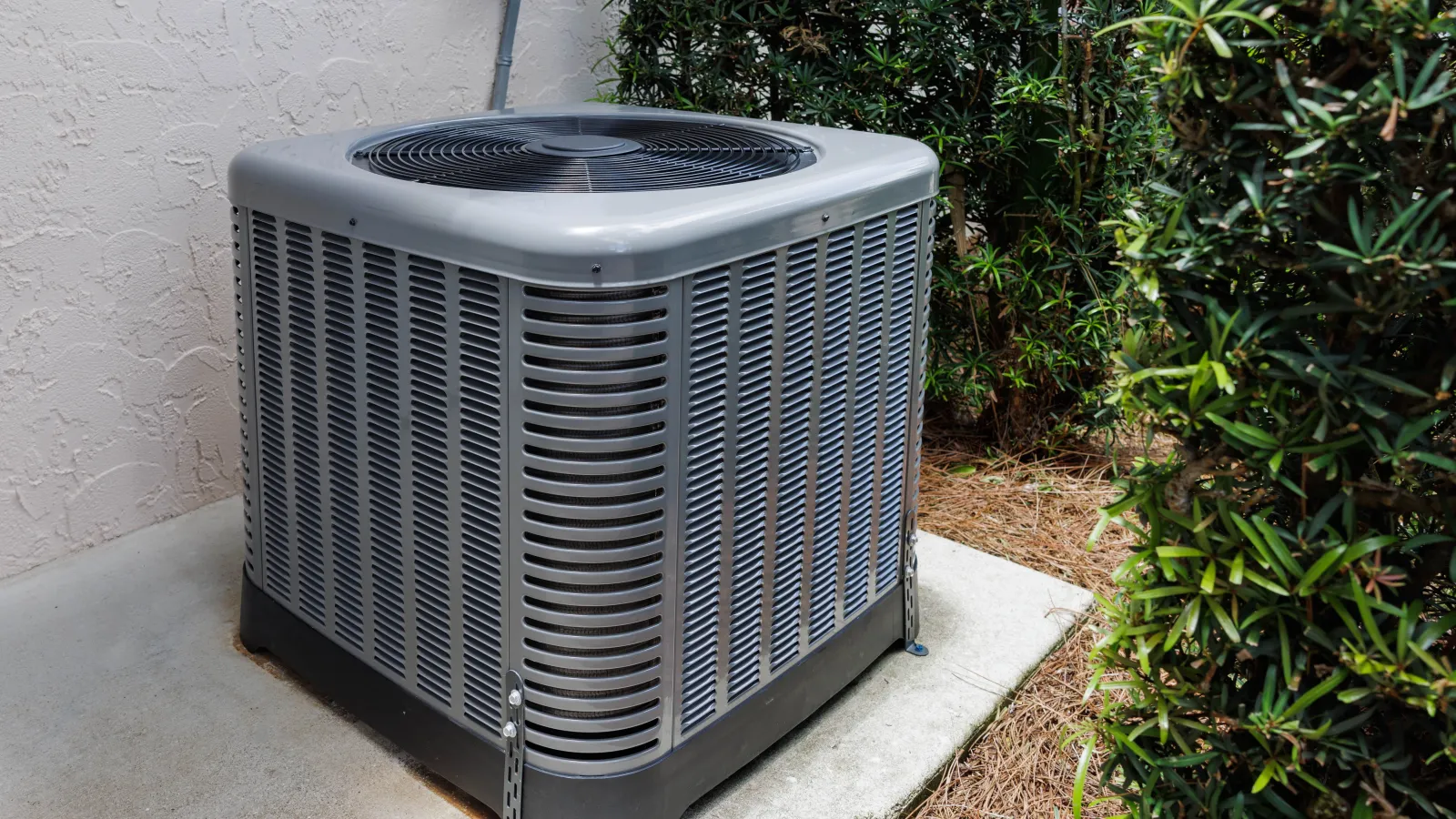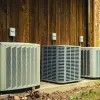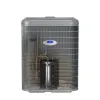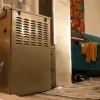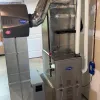Maybe you've heard that variable speed air conditioning systems are superior to standard units.
Or maybe you're comparing quotes for a basic air conditioner and a variable speed system.
Regardless, you're wondering to yourself, "Is variable speed AC worth it?"
Given the higher upfront costs of these systems, it's a very valid question! And it's one many homeowners ask when considering a variable speed air conditioner.
Let's take a look at whether getting one really is worth it. In our analysis, we'll consider comfort and efficiency improvements as well as costs.
Do variable speed AC units really make your house more comfortable?
Yes, they absolutely do! To understand why, let's compare how variable speed systems work to the way your current AC probably works.
Your AC responds to your thermostat setting by turning on whenever the indoor temperature drops below whatever you set. Set it to 75 degrees, and it will turn on when the indoor temperature rises to 76 degrees. Then it turns off after it's brought the temperature back down to 75.
Note that standard air conditioners always run at full capacity. In other words, they're always giving you a full blast of air.
Now let's compare that to the way a variable speed air conditioner works. Instead of turning on when the temperature goes up to 76, running at full capacity, and turning off after lowering the temperature a single degree, the variable speed unit:
- Was already running at a low speed, so it…
- Ramps up to a slightly higher speed to lower the temperature one degree
- Brings the indoor temperature back down to 75
- Slows back down to a lower speed to maintain the temperature you set on your thermostat
Notice that the AC never turned on or off and that it never ran at full capacity. It was always running, first a little slowly and then a bit faster when the indoor temperature exceeded the thermostat setting.
This makes your home more comfortable because:
- An AC that's almost always running at a low level will constantly remove humidity from your home, ensuring a drier environment.
- ACs that only run at full blast often cool one room or area more than other rooms or areas. By contrast, an AC that runs at a low speed most of the day keeps temperatures more consistent from room to room.
Since a variable speed AC keeps your home drier, many homeowners can also keep their thermostat on a higher set point, which saves energy. We'll cover that in more detail later in the article!
Since variable speed air conditioners rarely need to run at full blast, they are also less noisy than standard units. If you've got a problem with noise, you will notice a huge difference.
Is variable speed AC really more efficient than a standard AC?
Once again, yes. Variable speed AC is more efficient than a basic air conditioner.
We're talking orders of magnitude more efficient. It's not even close.
To understand what makes these units more efficient than regular old air conditioners, it's important to recognize two things:
- Air conditioners use lots of energy when they turn on from sitting idle.
- Air conditioners use lots of energy when they run at full capacity.
Standard ACs do both of those things all the time, all day long.
Variable speed ACs almost never do either of those things.
The result is an air conditioner that uses less energy by being more responsive to your precise heating and cooling needs!
After all, nobody needs their air conditioner to blow at full force every time it runs. On really hot days, you might need to use something approaching an AC's full capacity for a couple of hours. You might also need it when you're returning from vacation and you lower the temperature on the thermostat by several degrees in one go.
But 95% of the time, you don't need an air conditioner's full capacity.
From an efficiency standpoint, the ideal AC would be one that always runs at a low speed (keeping humidity low while avoiding high energy consumption due to switching on from idle) and ramps up a bit to meet your needs for cooling throughout the day.
Such an AC would make your home super comfortable and keep your summer electric bill super low.
And yes, it could still ramp up to full capacity on the rare occasion that you need it to.
Thankfully, a variable speed AC is that perfect air conditioner! It's the most efficient type of central AC you can get.
But isn't AC efficiency measured by SEER2?
Yes, but a variable speed air conditioner will always provide better real-world efficiency than a two-stage or basic AC with a comparable SEER2.
An AC's SEER2 is a rating is one efficiency variable that it's important to consider when shopping for a new system. Basically, the higher the SEER2, the more efficient the system.
But that doesn't mean SEER2 is the only efficiency variable.
Let's say you're comparing a 16.5 SEER2 standard system with an 18 SEER2 variable speed system. 16.5 and 18 aren't all that far apart, and 18 is lower than some systems which are 21 SEER2. So are the efficiency gains with the 18 SEER2 system really all that great?
In this case, it absolutely is!
It's true that 16.5 and 18 aren't all that far apart, but the real-world operation of a variable speed system means you're likely to set your thermostat to a higher temperature than with a standard system while feeling even more comfortable!
This is possible because the variable speed system does such a great job of removing humidity.
With a standard AC, many people set their thermostats to 72 or 73 degrees just to keep the AC running frequently enough to keep the humidity low. With a variable speed AC, you might be able to keep indoor temperatures around 76 or 77 and still feel super comfortable because the AC is so good at keeping the air dry!
So yes, the SEER2 ratings are pretty close. But in reality, you're not taxing the AC system as much, plus it doesn't have to turn on from idle all the time and use lots of electricity to do so.
Are the costs of variable speed AC worth it for what you get?
We can't really answer this question for you. You'll have to crunch some numbers and decide whether:
- A variable speed AC ultimately pays for itself in energy savings.
- The comfort and efficiency gains are worth it to you even if the variable speed unit doesn't end up paying for itself over time.
Different households with different cooling needs might end up with different results. The U.S. Department of Energy indicates that variable speed systems use 25% less energy than standard systems to deliver identical amounts of cooling.
In performing your calculations, consider that metric alongside the fact that you might not need to set your thermostat at as low a temperature when you've got a variable speed AC. This alone will lower your bill by a lot!
Note: At the time of publication, energy efficient heating and air conditioning systems qualify for massive rebates through Georgia's HEAR and HER programs. You could save thousands by purchasing a variable speed AC before rebate funds run out!
Does variable speed AC provide better indoor air quality?
Yes, it most definitely does!
A variable speed air conditioner improves air quality by:
- Running for longer cycles than a standard AC unit, therefore filtering more air
- Lowering the humidity in your home, which prevents dust mite proliferation and mold growth
Many indoor air quality problems in our region are the result of high indoor humidity. Since most air conditioners fail to lower humidity to the 45% to 60% relative humidity (RH) zone that's inhospitable to dust mites, it's common for many people's allergies to be worse inside their homes rather than outside!
Variable speed ACs address that problem by keeping your indoor humidity within a more comfortable range. Dust mites aren't happy and mold can't grow.
As a result, you don't sneeze so much and just feel generally better all the time!
So, is variable speed AC worth it?
For most homeowners, most of the time, we find that variable speed AC is absolutely worth it.
And in the current era of considerable rebates for energy efficient air conditioning systems, even homeowners with modest budgets are able to purchase variable speed replacement AC units!
If you're ready to replace your AC and have questions about variable speed systems, PV can help. Give us a call today at (404) 798-9672 or schedule an appointment online!
